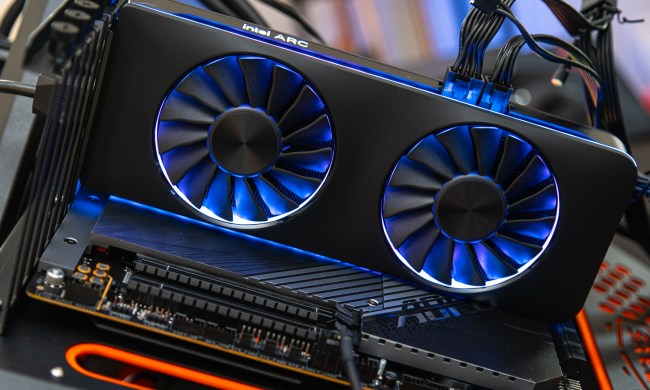We’ve gotten our first taste of Intel Alder Lake performance specs over the past week thanks to leaked benchmarks from Geekbench. The first results were underwhelming — AMD’s competing processors, despite being months older, handily beat Intel. Now more benchmarks have surfaced, and it looks like Alder Lake is shaping up to take on AMD’s best.
On Wednesday, a benchmark featuring the Intel Core i7-12700 leaked. The results showed it falling short of the AMD Ryzen 7 5800X in both the single-core and multi-core tests. A series of new Core i7-12700 benchmarks flip the script. The new results show the Core i7-12700 outperforming the Ryzen 7 5800X by about 14% in the multi-core test.

This is closer to what we expected out of Alder Lake. The results also show an increase in multi-core performance over last-gen’s Core i9-11900K, as well as a single-core score ahead of AMD’s Ryzen 5000 processors. It’s worth noting that the results show the Core i7-12700 as having eight cores and 16 threads. Rumors suggest it will have 12 cores and 20 threads.
Alder Lake uses performance (P) and efficient (E) cores. The benchmark either couldn’t pick up the four additional E-cores, or they were disabled for the test. Regardless, they’ll play a big role in Alder Lake’s performance. The upcoming processors include a hardware-level feature called Thread Director, which leverages the different cores based on which can deliver the best performance.
As we pointed out in the less-favorable benchmarks earlier this week, these results are likely below the final performance numbers. They come from early engineering samples, and Alder Lake isn’t officially supported by software yet. Still, the most recent benchmarks already show a competitive advantage for Alder Lake over AMD’s most recent chips.
The next batch of results concern the Core i9-12900K. On Monday, a result popped up for PugetBench for After Effects showing the Core i9-12900K falling short of AMD’s Ryzen 9 5950X. It’s worth noting that this benchmark isn’t only focused on the processor. The GPU plays a big role, and both the AMD and Intel results were using Nvidia’s beefy RTX 3090.
A new result, courtesy of the Geekbench Browser, is more favorable toward Intel’s upcoming flagship. It shows the Core i9-12900K outperforming the Ryzen 9 5950X by about 8.1% in the single-core test and 3.8% in the multi-core test. As with the Core i7-12700 results, this benchmark is using an engineering sample chip. The final results will likely be higher.

This result is also notable because it was run with Windows 11. Intel says Thread Director works best with Windows 11, and this result seems to confirm that. The test also correctly identified the 16 cores and 24 threads that are rumored to come on the Core i9-12900K, unlike the Core i7-12700 results run on Windows 10.
As is the case with all prerelease benchmarks, you shouldn’t take these results as set in stone. Drivers and software don’t include support for Alder Lake yet, and it’s never a good idea to make performance claims based on a single benchmark. Geekbench shows a piece of performance, not all of it.
Either way, Alder Lake looks like it’s shaping up well. Intel hasn’t announced pricing or a release date, but we’re hoping to hear more at the Intel Innovation event on October 27.



